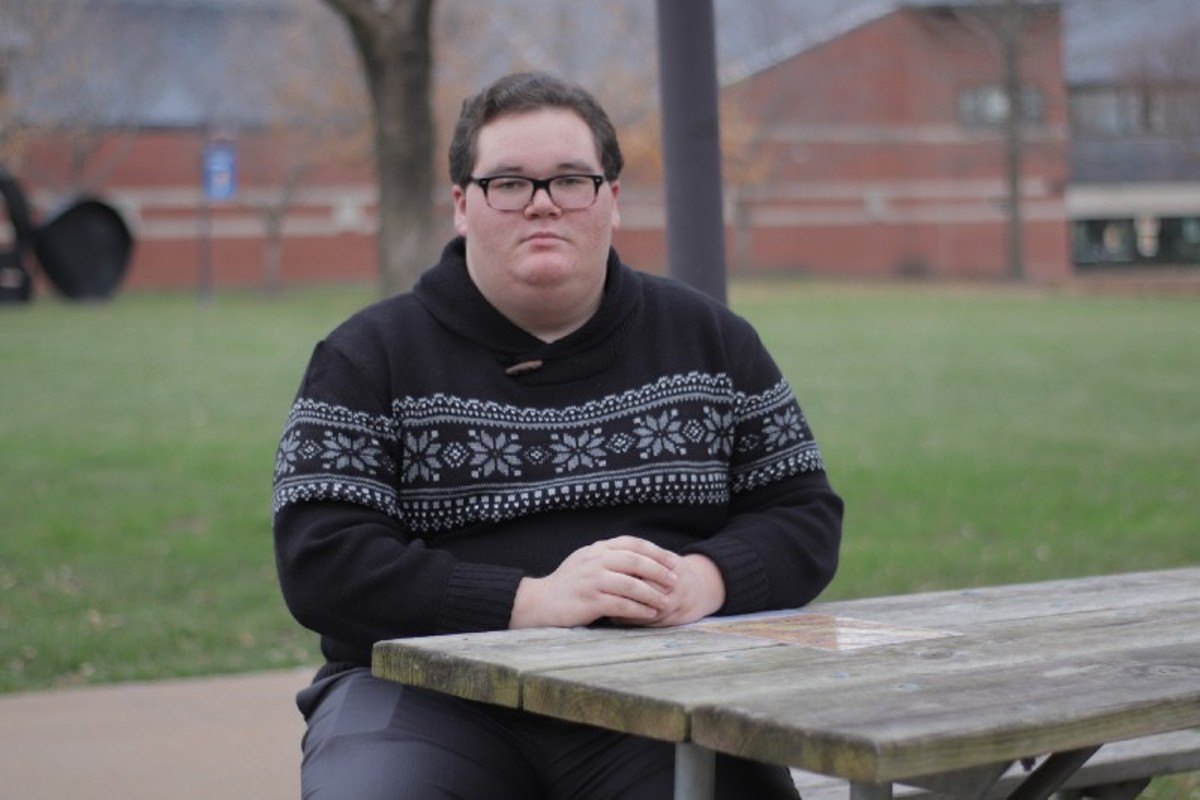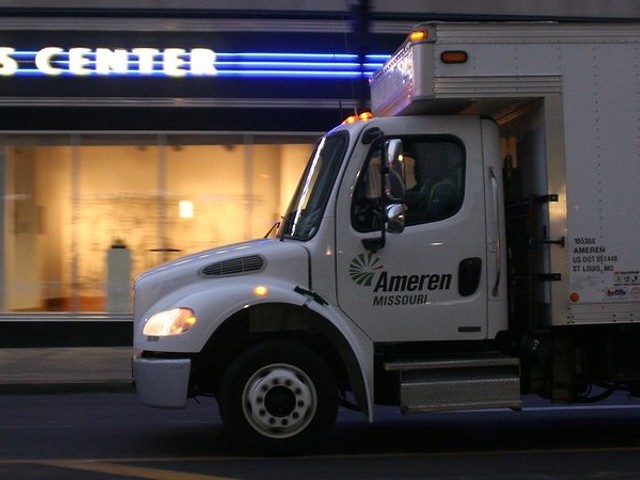College student John Wallis returned for a couple weeks in October to his boyhood home in rural Missouri, a place he does not speak about with high spirits. On these rare visits, he has a mental clock ticking in his head, counting down to the time when he can hit the road back to St. Louis.
Wallis began to resent his hometown of Neosho during his junior year of high school. He had begun arguing with others over politics, and he says he heard classmates say nasty things about students of color.
Neosho, a town of about 12,000, sits in the rural southwest corner of the state. The politics are conservative — Donald Trump won Newton County with 77 percent of the vote in 2016 and 78 percent in 2020 — and Wallis' emerging progressivism wasn't well received. When he helped organize a Black Lives Matter protest there in 2016, he was threatened, he says. It still scares him to go back.
Some of Wallis' conflict at home exists within his own family. One night during his October visit, he and his sister ordered Popeye's for dinner and their conversation drifted into politics. A chat over who they planned on voting for in the presidential election did not end as casually as it began.
They agreed on not voting for Donald Trump. Then, Wallis recalls, his sister said she thought Joe Biden was a pedophile because of a video she watched on YouTube. Wallis says it became impossible to have a civil discussion after that.
Wallis' parents suggested he and his sister stop talking about politics, but it has become harder for him to relate to people at home. Now back in St. Louis, he emphasizes that his next visit for the holidays will only be for a week.
Wallis used to have a close relationship with his sister. In recent years, he says, they have talked less and less. He tries to change the subject to avoid conflict any time she brings up politics.
He chuckles as he recalls the argument in October, but he sees it as part of a larger issue of polarization that has had serious implications in his life.
Wallis, who announced to his family he was gay on his last trip home, does not shy away from expressing his opinion on politics and LGBTQ rights. His Facebook profile picture is outlined with the rainbow colors adopted by LGBTQ communities, and his background is a Black Lives Matter logo and photo.
He struggles to find middle ground with his hometown crowd. The divide has become so deep that he says he does not plan on ever going back for an extended time.
Wallis' clash with his sister is only the beginning of a long list of damaged or tarnished relationships that have deteriorated in recent years. After COVID-19 and the killing of George Floyd, the already hostile environment became worse than ever.
"It's those kinds of events that happened in 2020 that made it so much more polarized than 2016," Wallis says. "And that's what has caused a lot of the rifts in my relationships."
A student at Webster University, he says the split started with social media. A controversial post would lead to shares, comments and uncivil arguments, all through a keyboard that makes it easy to talk and much harder to listen to a differing viewpoint.
Wallis hasn't given up. He still hopes to repair family relationships going forward despite the differences they hold.
Division on key issues is not new in the United States. We have fought each other in a civil war, argued over women's suffrage and suffered through Prohibition. The civil rights movement successes of the 1960s are often viewed through a sense of nostalgia that tends to obscure the reality of police dog bites, fire hoses aimed at young protesters and bloody beatings on an Alabama bridge. We are not a nation that always gets along.
This year, we've experienced three polarizing issues, each of which would have been historic on its own.
Start with a contentious presidential election that grew increasingly bitter through the year, hitting levels of discord that have yet to subside. Those political divisions soon became entwined in the United States' disjointed response to a pandemic that upended the economy, killed more than 300,000 Americans and sparked endless disagreements about the best way to handle it.
In the middle of it all, Floyd was killed by police in Minneapolis. The footage of a white officer pressing his knee against Floyd's neck for more than eight minutes as Floyd's life slipped away ignited a summer of protests in cities across the country.
A major difference between previous generations' disputes and ones today is social media. It adds an entirely new dimension to conflict that can make it inescapable and allows fake news to spread like wildfire. Fact and fiction have morphed together, making it hard for us to see through the blurred lines.
A Pew Research Center study published in July concluded that Americans who rely on social media for news were less knowledgeable on current issues and more likely to hear about a conspiracy theory that COVID-19 was created in a lab. Twenty percent of American adults consume political information primarily through social media, according to the study.






